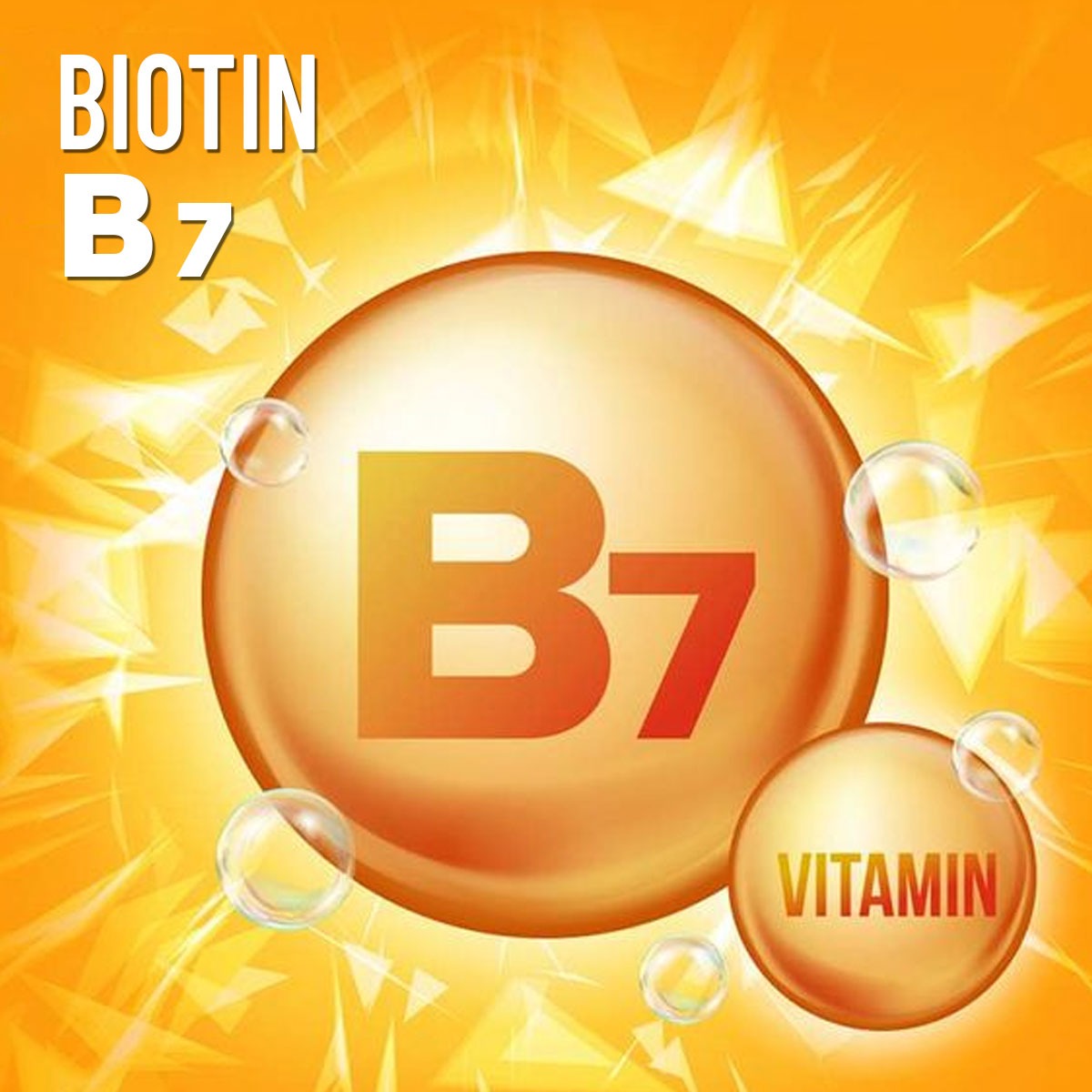Vitamin B7, also known as biotin, is a water-soluble vitamin that plays a crucial role in various metabolic processes in the body. It is part of the B complex group of vitamins, which are essential for converting food into energy. Biotin is particularly important for the health of the skin, hair, nails, and nervous system.
Benefits of Vitamin B7
Metabolism Support:
Biotin acts as a coenzyme in the metabolism of carbohydrates, fats, and proteins. It helps convert these macronutrients into glucose and fatty acids, which the body uses for energy.
Skin Health:
Biotin is vital for maintaining healthy skin. It helps in the production of fatty acids that nourish the skin and keep it hydrated. Deficiency in biotin can lead to skin conditions like dermatitis and rashes.
Hair and Nail Health:
Biotin is often touted for its ability to strengthen hair and nails. It helps in the production of keratin, a protein that is a key structural component of hair, nails, and skin. Supplementation with biotin is sometimes recommended for people with brittle nails or thinning hair.
Pregnancy and Embryonic Development:
Biotin is important during pregnancy as it supports embryonic growth. Pregnant women need higher amounts of biotin, making it essential to ensure adequate intake during this period.
Neurological Functions:
Biotin is involved in the synthesis of neurotransmitters and plays a role in maintaining cognitive function and mental health.
Natural Sources of Vitamin B7
Biotin is found in various foods, making it relatively easy to incorporate into a balanced diet. Some rich sources of biotin include:
Egg Yolks: One of the best natural sources, but they should be consumed cooked to avoid the binding of biotin by avidin, a protein in raw egg whites.
Nuts and Seeds: Almonds, walnuts, peanuts, and sunflower seeds are good sources.
Legumes: Peas, beans, and lentils provide a significant amount of biotin.
Whole Grains: Foods like oats, barley, and wheat contain biotin, especially in the bran.
Liver and Organ Meats: These are among the richest sources of biotin.
Fish: Salmon and sardines are good options.
Dairy Products: Milk, cheese, and yogurt contain biotin.
Vegetables: Sweet potatoes, spinach, and broccoli are also good sources.
Supplements
For individuals who may not get enough biotin from their diet, supplements are available. Biotin supplements come in various forms, including:
Tablets and Capsules: These are the most common forms and are widely available.
Gummies: An alternative for those who have difficulty swallowing pills.
Liquid Biotin: Can be added to drinks or taken directly.
Supplements can be particularly useful for individuals with certain health conditions that affect nutrient absorption, pregnant women, or those on restrictive diets. However, it is important to consult with a healthcare provider before starting any supplement regimen to ensure it is necessary and safe.
By consuming a balanced diet rich in biotin-containing foods and using supplements when needed, you can support your overall health and well-being effectively.


